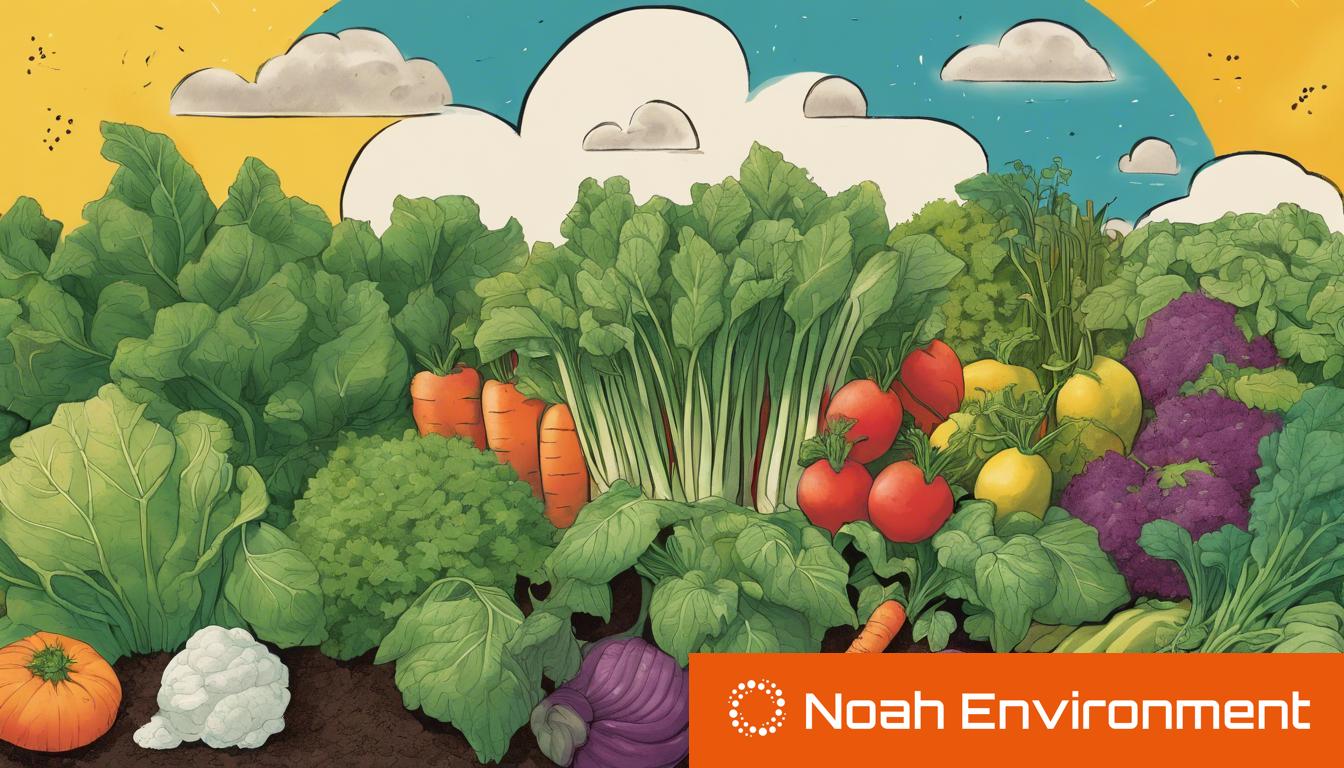In response to climate change, UK vegetable gardeners are embracing resilient gardening practices and experimenting with new, exciting vegetable varieties to ensure the sustainability and diversity of their gardens.
Vegetable gardeners in the UK are responding to increasingly unpredictable weather patterns and the allure of new vegetable varieties by adopting strategies for resilience and experimentation in their gardens. Kim Stoddart, the author of “The Climate Change-Resilient Vegetable Garden,” recommends practices aimed at making vegetable gardens more resilient against extreme weather. These practices include moderating water and nutrient supply to encourage deeper root growth, employing soil management techniques like “no dig” gardening and mulching, and selecting resilient crop varieties such as perennials, amaranth, Jerusalem artichoke, and crystal lemon cucumber.
In parallel, the gardening community is showing a keen interest in new and exciting vegetable variants. Jessica Damiano has highlighted a range of innovative vegetable varieties making their way into gardens this year. Among them are Fruit Snacks apple trees by Plants Nouveau, suited for small spaces; Love Gourmansun beefsteak tomatoes from Burpee, known for their disease resistance; and Pastel Duo baby turnip seed mix from Japan, which offers a sweet, mild flavor in pink and white variations. Other notable introductions include Quick Snack cucumbers by PanAm Seed, suitable for compact growing areas; Noga Prospera Active DMR organic basil by Genesis Seeds, resistant to downy mildew; and Lila Lu Sang carrots from Baker Creek Rare Seeds, with a visually striking purple-orange exterior and a sweet taste.
These developments present vegetable growers with strategies to enhance the resistance of their gardens to erratic weather conditions, while also expanding the variety and visual appeal of their crops. The focus on building resilience and exploring new vegetable variants underscores the gardening community’s adaptive and innovative approaches in the face of climatic challenges and the pursuit of diversity in homegrown produce.
